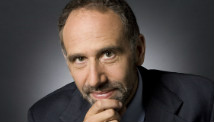With the "fiscal cliff" crisis behind him, President Obama is poised to name two new key players to his cabinet, with both announcements expected to come next week.
Obama will name the replacement for outgoing Defense Secretary Leon Panetta as soon as Monday, sources told ABC News. Former Republican Sen. Chuck Hagel is the likely nominee, they said.
Meanwhile, the president is also eyeing a replacement for outgoing Treasury Secretary Timothy Geithner, the longest-serving member of Obama's first-term economic team and one-time lead negotiator for the administration in the "fiscal cliff" talks.
Current chief of staff Jack Lew is all but certain to get the nod for Treasury, according to people familiar with Obama's thinking.
A White House spokesman cautioned that the president has not yet made a final decision on either post, calling reports about Hagel and Lew "merely guessing."
Still, when Obama returns from his Hawaiian vacation on Sunday, he's expected to waste little time filling out his team for a second term.
Geithner has said he would remain at his post "until around the inauguration" Jan. 20, a Treasury spokesperson noted Thursday, putting the department potentially in transition just as the administration confronts the next "cliffs" over the automatic spending cuts and nation's debt limit.
Brendan Hoffman/Getty Images
3 Dead After Plane Crashes Into Florida Home Watch Video
Pilot Arrested After Failing Breathalyzer Test Watch Video
Colorado Police Officers on Leave After Killing Elk Watch Video
During an appearance on ABC's "This Week" in April, Geithner said the next Treasury secretary would need to be someone who is "willing to tell [Obama] the truth and, you know, help him do the tough things you need to do."
Lew, a former two-time Office of Management and Budget director and trusted Obama confidant who has held the chief of staff role since early 2012, is the front-runner for the job.
Meanwhile, Sen. John Kerry -- Obama's nominee to replace outgoing Secretary of State Hillary Clinton -- has begun making more regular appearances at the U.S. State Department before his expected confirmation later this month.
His Senate hearings are set to begin shortly after Obama's inauguration, sources say. The administration still expects Clinton to testify about the Sept. 11 Benghazi, Libya, attacks before Kerry is confirmed.
But it is the potential nomination of Republican Hagel that has caused the most stir.
Critics from across the political spectrum have taken aim at the former senator from Nebraska's record toward Israel and what some have called a lack of experience necessary to lead the sprawling Pentagon bureaucracy or its operations. The controversy has set the stage for what would be a contentious confirmation process.
"A lot of Republicans and Democrats are very concerned about Chuck Hagel's position on Iran sanctions, his views toward Israel, Hamas and Hezbollah, and that there is wide and deep concern about his policies," Sen. Lindsey Graham, R-S.C., told "Fox News Sunday."
He would not say whether Republicans felt so strongly as to expect a filibuster of the nomination.
"I can tell you there would be very little Republican support for his nomination," Graham said. "At the end of the day, they will be very few votes."
Still, Hagel, 66, a former businessman and decorated veteran who served in the Vietnam War, has won praise and admiration from current and former diplomats for his work on Obama's Intelligence Advisory Board and Panetta's Policy Advisory Board.

 iPhone, iPad and Mac are trademarks of Apple Inc., registered in the U.S. and other countries. App Store is a service mark of Apple Inc.
iPhone, iPad and Mac are trademarks of Apple Inc., registered in the U.S. and other countries. App Store is a service mark of Apple Inc.










